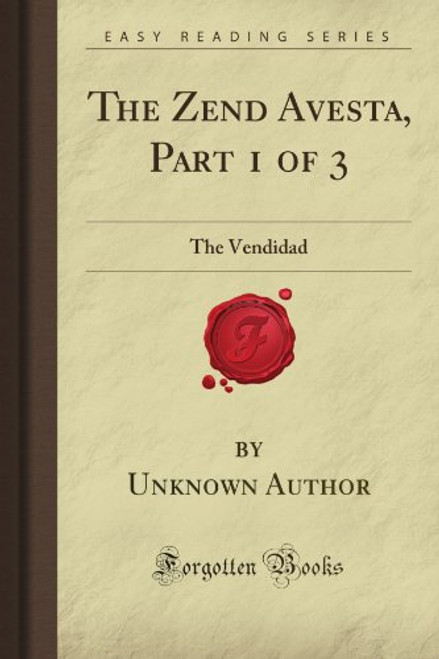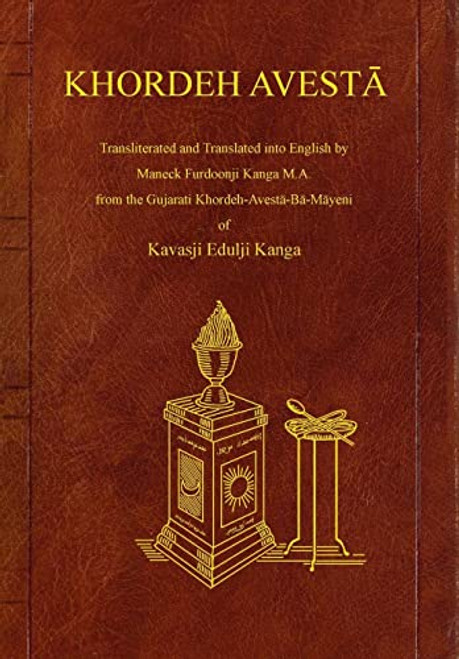The etymology of the term Avesta itself is uncertain, but a derivation from middle Persian abestag, 'praise', is a frequently noted possibility. The texts of the Avesta - which are all in the Avestan language - were collated over several hundred years. The most important portion, the Gathas, in Gathic Avestan, are the hymns thought to have been composed by Zarathushtra (Zoroaster) himself, and date linguistically to around 1000 [BC]. The liturgical texts of the Yasna, which includes the Gathas, is partially in Older and partially in Younger Avestan. The oldest portions may be older than the Gathas, later adapted to more closely follow the doctrine of Zoroaster. The various Yashts are in Younger Avestan and thought to date to the Achaemenid era (559-330 [BC]). The Visperad and Vendidad, which are also in Younger Avestan, were probably composed even later but this is not certain. (Quote from wikipedia.org) About the Author Thomas Firminger Thiselton-Dyer (1843 - 1928) Sir William Turner Thiselton-Dyer FLS FRS KCMG (July 28, 1843-December 23, 1928) was a British botanist. Thiselton-Dyer was born in Westminster, London. Initially studying mathematics at Oxford University, he graduated in natural science in 1867. He became Professor of Natural History at the Royal Agricultural College in Cirencester and then Professor of Botany at the Royal College of Science in Dublin. In 1872, he became professor at the Royal Horticultural Society in London, being recommended by Joseph Hooker. Then in 1875, Thiselton-Dyer was offered the Assistant Directorship at Royal Botanic Gardens, Kew, under Hooker, where he was to stay for thirty years. Thiselton-Dyer spent considerable time on the Colonies, e.g. introducing rubber to plantations of Sri Lanka
The Zend Avesta, Part 1 of 3: The Vendidad (Forgotten Books)
$21.13 - $23.82
- UPC:
- 9781606201954
- Maximum Purchase:
- 2 units
- Binding:
- Paperback
- Publication Date:
- 5/7/2008
- Release Date:
- 5/7/2008
- Author:
- Mead, George Robert Stow
- Language:
- English: Published; English: Original Language; English
- Pages:
- 312











